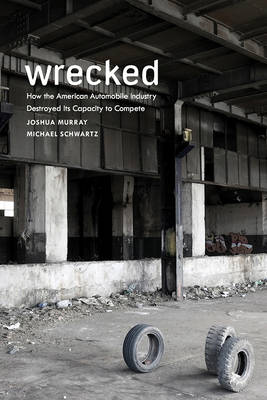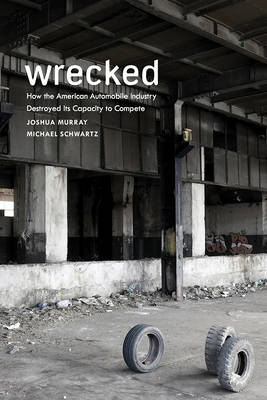At its peak in the 1950s and 1960s, automobile manufacturing was the largest, most profitable industry in the United States and residents of industry hubs like Detroit and Flint, Michigan had some of the highest incomes in the country. Over the last half-century, the industry has declined, and American automakers now struggle to stay profitable. How did the most prosperous industry in the richest country in the world crash and burn? In
Wrecked, sociologists Joshua Murray and Michael Schwartz offer an unprecedented historical-sociological analysis of the downfall of the auto industry. Through an in-depth examination of labor relations and the production processes of automakers in the U.S. and Japan both before and after World War II, they demonstrate that the decline of the American manufacturers was the unintended consequence of their attempts to weaken the bargaining power of their unions.
Today Japanese and many European automakers produce higher quality cars at lower cost than their American counterparts thanks to a flexible form of production characterized by long-term sole suppliers, assembly and supply plants located near each other, and just-in-time delivery of raw materials. While this style of production was, in fact, pioneered in the U.S. prior to World War II, in the years after the war, American automakers deliberately dismantled this system. As Murray and Schwartz show, flexible production accelerated innovation but also facilitated workers' efforts to unionize plants and carry out work stoppages. To reduce the efficacy of strikes and combat the labor militancy that flourished between the Depression and the postwar period, the industry dispersed production across the nation, began maintaining large stockpiles of inventory, and eliminated single sourcing. While this restructuring of production did ultimately reduce workers' leverage, it also decreased production efficiency and innovation. The U.S. auto industry has struggled ever since to compete with foreign automakers, and formerly thriving motor cities have suffered the consequences of mass deindustrialization.
Murray and Schwartz argue that new business models that reinstate flexible production and prioritize innovation rather than cheap labor could stem the outsourcing of jobs and help revive the auto industry. By clarifying the historical relationships between production processes, organized labor, and industrial innovation,
Wrecked provides new insights into the inner workings and decline of the U.S. auto industry.















